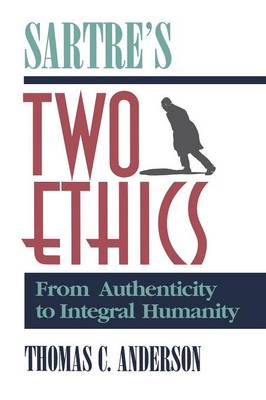It is well-known that Sartre's thought developed from an incomplete, abstract, and individualistic concept of human reality, human freedom, and their relation to the world, to a more concrete and richer understanding of the human being, its freedom, the power of circumstances, and the social-political nature of human existence. It is less widely recognised that there is a parallel progression in Sartre's moral thinking, from an abstract, idealistic ethics of authenticity to a more concrete, realistic and materialistic morality. Anderson's book, contains a thorough study of the two most important ethical works of Sartre to have become available since 1980, the "Notebooks for an Ethics", written in the late 1940s but published in 1983, and the unpublished manuscript of a lecture on ethics delivered in 1964, containing his most complete discussion of his "second morality". In drawing upon these and other sources, Anderson's book is a study of Sartre's first and second ethics. Anderson evaluates Sartre's arguments for his ethical positions, and concludes that his second ethics constitutes a significant advance over his first.
Anderson is author of "The Foundation and Structure of Sartrean Ethics" (1979).
- ISBN10 0812692330
- ISBN13 9780812692334
- Publish Date 12 February 1999
- Publish Status Active
- Publish Country US
- Imprint Open Court Publishing Co ,U.S.
- Format Paperback (US Trade)
- Pages 232
- Language English
